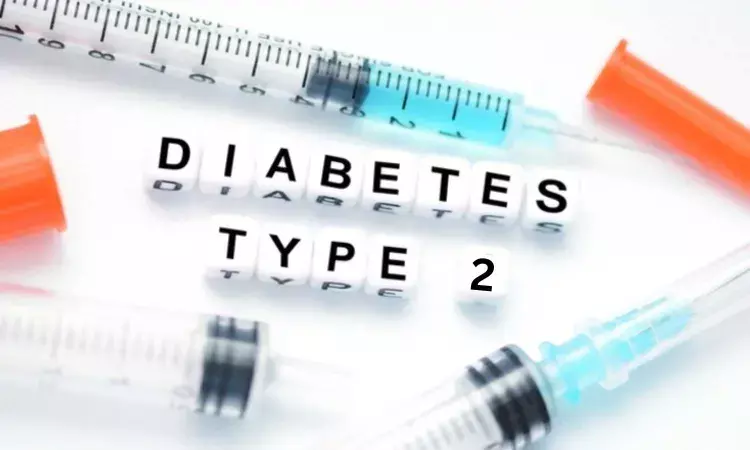- Home
- Medical news & Guidelines
- Anesthesiology
- Cardiology and CTVS
- Critical Care
- Dentistry
- Dermatology
- Diabetes and Endocrinology
- ENT
- Gastroenterology
- Medicine
- Nephrology
- Neurology
- Obstretics-Gynaecology
- Oncology
- Ophthalmology
- Orthopaedics
- Pediatrics-Neonatology
- Psychiatry
- Pulmonology
- Radiology
- Surgery
- Urology
- Laboratory Medicine
- Diet
- Nursing
- Paramedical
- Physiotherapy
- Health news
- Fact Check
- Bone Health Fact Check
- Brain Health Fact Check
- Cancer Related Fact Check
- Child Care Fact Check
- Dental and oral health fact check
- Diabetes and metabolic health fact check
- Diet and Nutrition Fact Check
- Eye and ENT Care Fact Check
- Fitness fact check
- Gut health fact check
- Heart health fact check
- Kidney health fact check
- Medical education fact check
- Men's health fact check
- Respiratory fact check
- Skin and hair care fact check
- Vaccine and Immunization fact check
- Women's health fact check
- AYUSH
- State News
- Andaman and Nicobar Islands
- Andhra Pradesh
- Arunachal Pradesh
- Assam
- Bihar
- Chandigarh
- Chattisgarh
- Dadra and Nagar Haveli
- Daman and Diu
- Delhi
- Goa
- Gujarat
- Haryana
- Himachal Pradesh
- Jammu & Kashmir
- Jharkhand
- Karnataka
- Kerala
- Ladakh
- Lakshadweep
- Madhya Pradesh
- Maharashtra
- Manipur
- Meghalaya
- Mizoram
- Nagaland
- Odisha
- Puducherry
- Punjab
- Rajasthan
- Sikkim
- Tamil Nadu
- Telangana
- Tripura
- Uttar Pradesh
- Uttrakhand
- West Bengal
- Medical Education
- Industry
Concomitant reduction of body weight and HbA1C effectively lowers mortality risk in type 2 diabetes: Study

France: Concomitant reductions in body weight and glycated haemoglobin (HbA1c) are more effective in preventing the risk of mortality and vascular events among patients with type 2 diabetes (T2D), a systematic review and meta-analysis in Diabetes Obesity and Metabolism found.
"Indeed, concomitant reductions in body weight and HbA1C seem to be more effective than reductions in either parameter alone," the researchers wrote.
Current guidelines for diabetes management recommend a holistic approach instead of a target weight and HbA1c level. Most studies have focused on weight and HbA1c as independent risk factors for cardiovascular adverse events, but there is no clarity on the effects of HbA1c reductions according to changes in body weight.
Alhassane Diallo, University of Montpellier, Montpellier, France, and colleagues aimed to investigate the impact of glucose-lowering therapy-induced HbA1c reduction on the risk of major clinical events according to body weight change. They also evaluated the impact of concomitant reductions in body weight and HbA1c on major clinical events.
For this purpose, the researchers searched the online databases up to June 30, 2022, for large-scale studies on glucose-lowering with over 1000 patient-years of follow-up in each group. The primary outcome was mortality from all causes. Secondary outcomes included major adverse cardiovascular events (MACEs), myocardial infarction, heart failure, cardiovascular death, and kidney failure. Overall summary estimates were calculated using random-effects models.
The analysis included 34 studies with 227,220 patients with type 2 diabetes (mean age 63 years, the mean diabetes duration was 10.7 years, the mean HbA1c was 7.9%, and the mean body mass index (BMI) was 31.2 kg/m2).
The researchers reported the following findings:
- Each 1% reduction in HbA1c was associated with a different risk of mortality depending on the ability of glucose-lowering therapies to induce body weight loss or gain.
- When glucose-lowering therapies were associated with weight gain, the risk of mortality increased by 8% (hazard ratio [HR] 1.08) for each 1% reduction in HbA1c.
- When glucose-lowering therapies were associated with weight loss, mortality risk was reduced by 22% (HR 0.78) for each 1% reduction in HbA1c.
- Concomitant reductions in HbA1c and body weight were associated with a significantly lower risk of mortality and vascular events.
"The findings showed that in type 2 diabetes patients, concomitant reductions in body weight and HbA1c might be more effective in preventing the risk of vascular events and mortality," the researchers concluded.
Study limitations included moderate to high degrees of heterogeneity in the definitions of heart failure, cardiovascular death, and kidney failure and a lack of generalizability due to variable patient backgrounds and baseline characteristics.
Reference:
Diallo A, Villard O, Carlos-Bolumbu M, Renard E, Galtier F. Effects of hypoglycaemic agents on reducing surrogate metabolic parameters for the prevention of cardiovascular events and death in patients with type 2 diabetes: A systematic review and meta-analysis. Diabetes Obes Metab. 2023 Oct 23. doi: 10.1111/dom.15335. Epub ahead of print. PMID: 37869934.
Dr Kamal Kant Kohli-MBBS, DTCD- a chest specialist with more than 30 years of practice and a flair for writing clinical articles, Dr Kamal Kant Kohli joined Medical Dialogues as a Chief Editor of Medical News. Besides writing articles, as an editor, he proofreads and verifies all the medical content published on Medical Dialogues including those coming from journals, studies,medical conferences,guidelines etc. Email: drkohli@medicaldialogues.in. Contact no. 011-43720751


